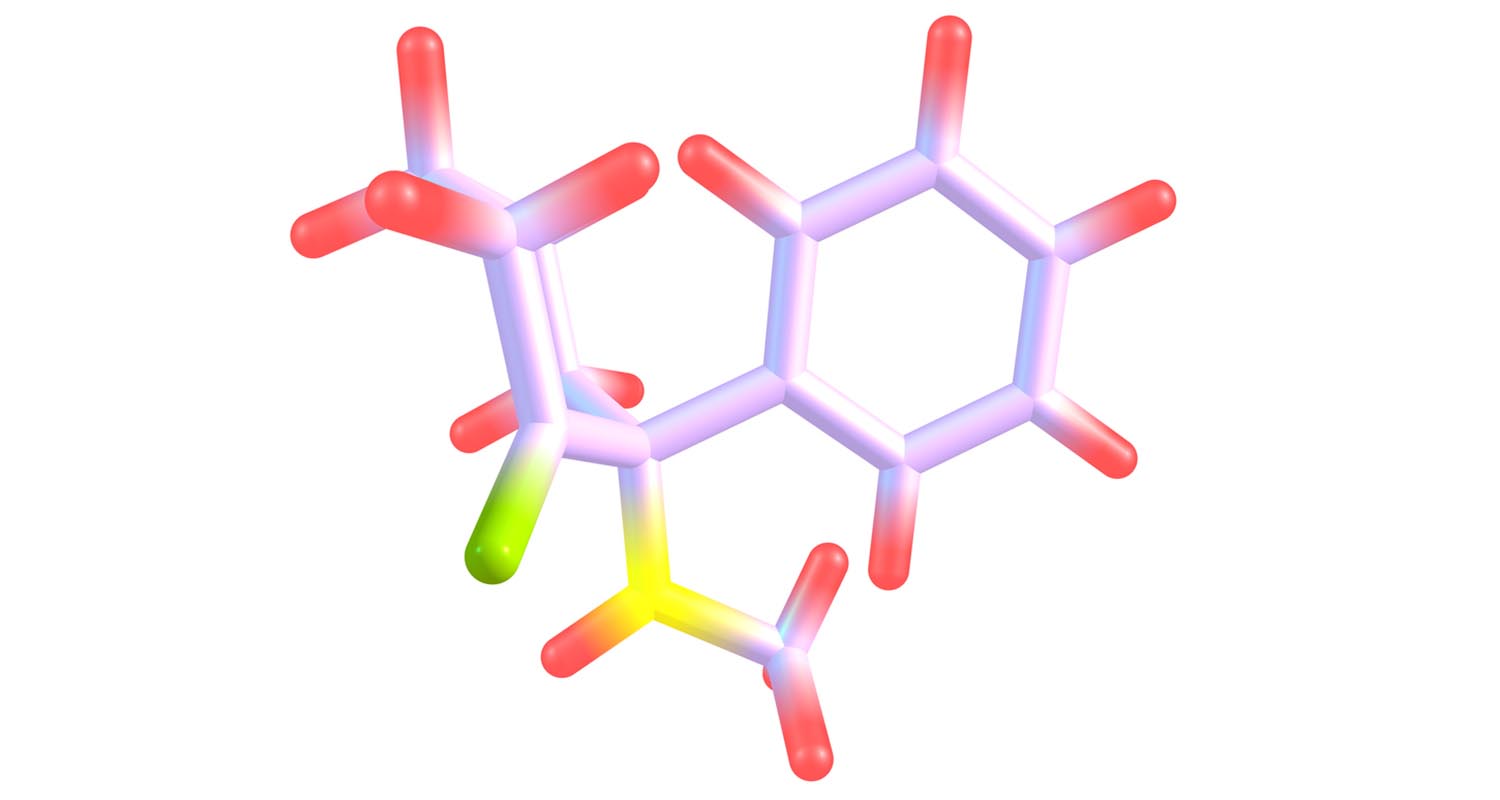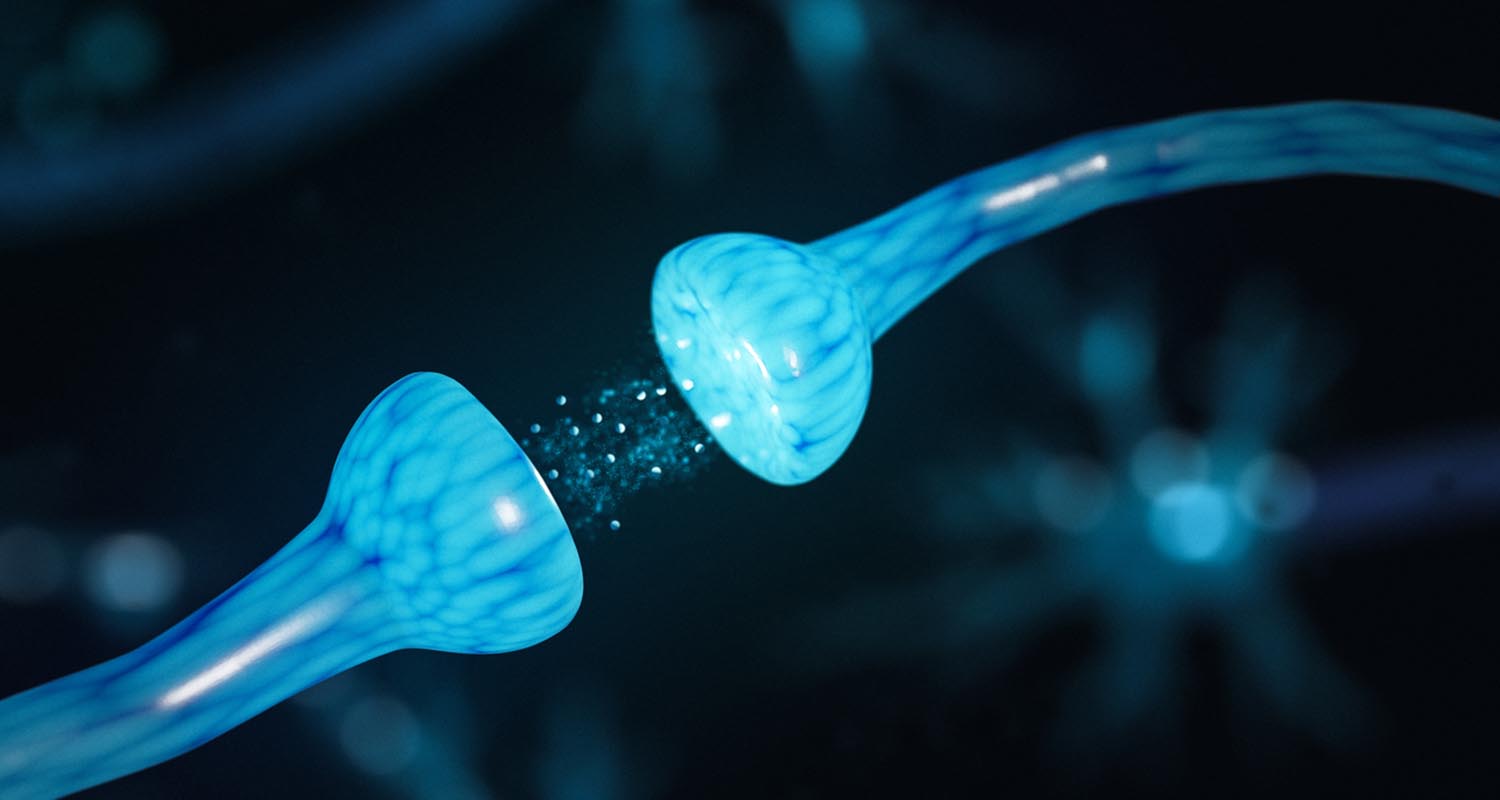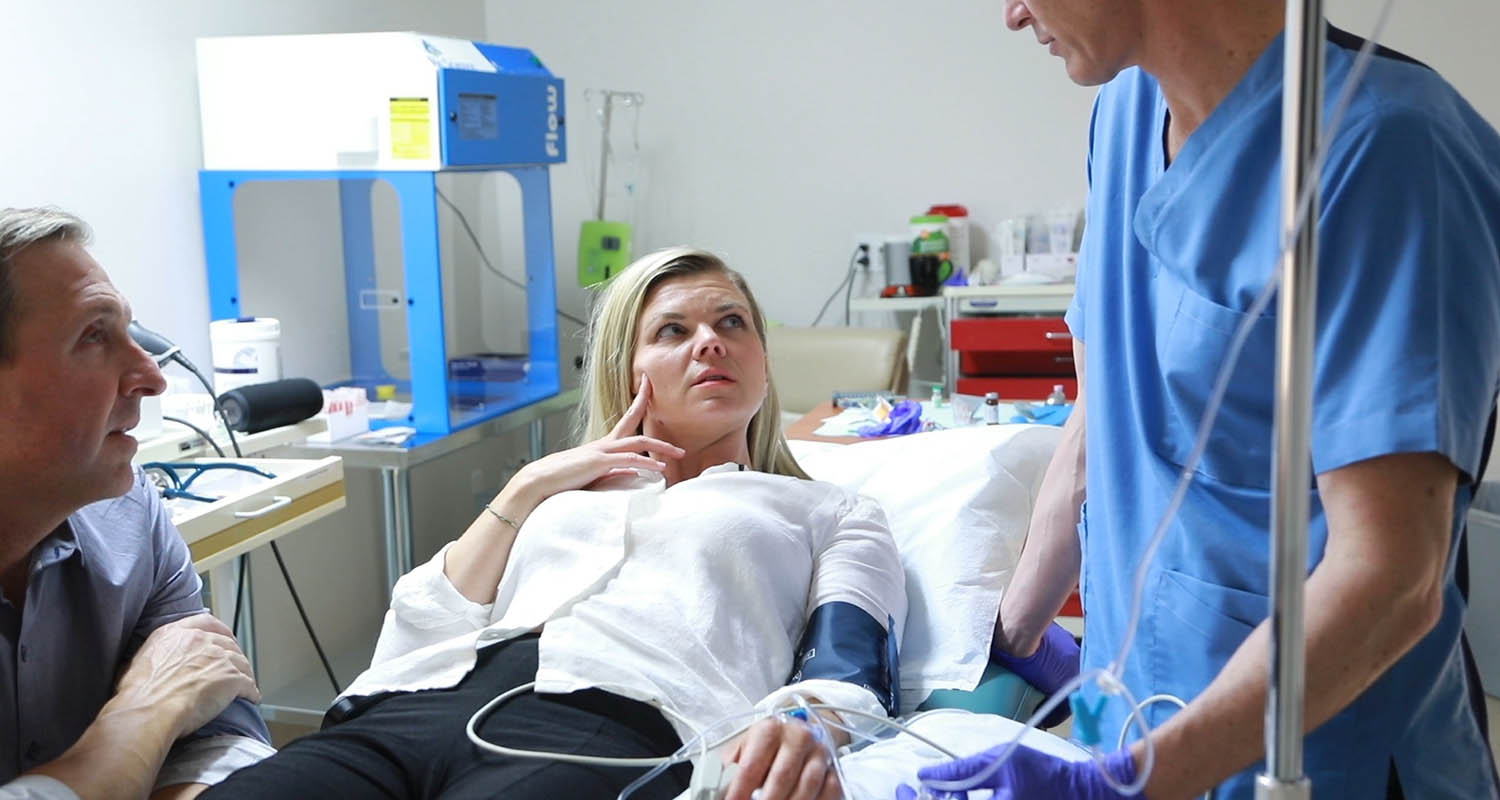
- Ketamine, which gained notoriety as a club drug in the ‘90s, is gaining momentum as a wonder drug for the treatment of depression
- Ketamine, which works directly on brain receptors, can offer relief from depression symptoms in as little as 24 hours — as opposed to traditional antidepressants, which work on shifting hormonal balances in the brain and can take up to 8 weeks to become effective
- Ketamine infusion therapy can be an effective way to manage depression symptoms — but only under the supervision of a medical doctor
There’s a new treatment that’s gaining traction as a wonder drug for depression — and that’s ketamine. According to its advocates, medically administered ketamine infusions have the potential to revolutionize the way doctors treat depression — and give people struggling with depression unprecedented relief from their symptoms.
On a recent Bulletproof Radio podcast episode (iTunes), Dave spoke with neuropsychiatrist Dr. David Feifel, one of the first people to use ketamine to treat depression. “I had patients who it’s basically taken them from being suicidal to living a very full and complete life,” said Feifel. “[Some] return on a periodic basis and some of them have just stopped coming in [because they’ve been cured].”
For people struggling with depression, treatment is crucial. Unfortunately, traditional treatments don’t work for everyone; about 30% of people with depression don’t respond to traditional pharmaceutical treatment, and even for people who do respond, antidepressants can take up to eight weeks to take effect — which, when you’re struggling with depression, can feel like a lifetime.
According to the Anxiety and Depression Association of America, more than 16 million American adults struggle with major depressive disorder. And, for many, depression can be debilitating; depression is the leading cause of disability for Americans between the ages of 15 and 44, costing the US economy a whopping $210 billion per year in lost productivity and missed days of work.
Disclaimer: This article and video feature a medical procedure performed by a medical professional. Do not try this at home. All information, content, and material is for informational purposes only and is not intended to serve as a substitute for the consultation, diagnosis, and/or medical treatment of a qualified physician or healthcare provider.
Related: How to Fight Depression Without Medication
What is ketamine?

Ketamine is classified as a dissociative anesthetic, along with drugs like PCP and nitrous oxide. It’s currently a class III scheduled drug (meaning it’s approved for use in hospital or medical settings). At high doses, ketamine is an ideal anesthetic, since it causes sedation and amnesia without suppressing respiratory function or lowering blood pressure.
In lower doses, ketamine can cause hypnotic states, altered perception of sight and sound, pain relief, and dissociative states. These dissociated states can make you feel detached from your body or from your surrounding environment (similar to an out of body experience).
Because of the dissociative effects and visual and auditory effects it can produce, ketamine gained popularity in the club scene as a hallucinogenic (most commonly known as Special K). But while the drug definitely has potential to be abused recreationally, when used under medical supervision, studies show ketamine infusions have the potential to be a complete game-changer for people struggling with severe, treatment-resistant depression.
“When traditional treatments don’t work, [ketamine] is the least harsh, safest, and fastest-working option that provides long-term relief,” says Dr. Francisco Cruz, a board-certified psychiatrist at Ketamine Health Centers, a ketamine infusion center in Miami, Florida.
How do ketamine infusions work on depression?

While traditional antidepressants shift the balance of hormones called neurotransmitters in the brain, ketamine works directly on receptors. Ketamine blocks NMDA (also known as glutamate) receptors, which are widely believed to play a major part in depression — and as it blocks that receptor, it changes the way brain cells communicate, directly impacting other receptors in the brain, including the opiate receptors, which affect depression and pain responses.
“Ketamine is a dissociative agent that works on the neurotransmitter glutamate,” says Cruz. “By antagonizing the glutamate receptor, it has downfield effects on other neurotransmitters in the brain such as serotonin and the opiate system.”
Because ketamine works on receptors — and not on shifting hormone balances — the effects are dramatically faster. While traditional antidepressants can take anywhere from 4 to 8 weeks to start taking effect, ketamine starts to work almost immediately — sometimes within minutes. During a study of ketamine’s effect on people with treatment-resistant bipolar depression,[ref url=”https://www.ncbi.nlm.nih.gov/pubmed/?term=25313512″] participants experienced a reversal of a significant symptom — loss of interest in pleasurable activities — within 40 minutes of their first ketamine infusion.
Related: Lower Your Glutamate Levels Naturally With KetoPrime
The fact that ketamine infusions provide near-immediate relief from depression symptoms can be a literal lifesaver — particularly for people struggling with suicidal ideation. A study from the American Journal of Psychiatry[ref url=”https://ajp.psychiatryonline.org/doi/10.1176/appi.ajp.2017.17060647″] found that ketamine was able to significantly reduce suicidal thoughts in participants with major depressive disorder in just 24 hours — and without any of the lasting negative side effects typical of other depression treatments.
“Studies have shown ketamine infusion therapy relieves suicidal ideation within 24 hours without harsh side effects like memory loss, which often happens with treatments like electroshock,” says Cruz. “On the contrary, patients reported minimal side effects with ketamine infusion therapy.”
What to expect during a ketamine treatment
If you’re struggling with depression, have had little success with more traditional treatments, and want to explore ketamine infusion as a potential treatment, the first step is to speak with your doctor. While your primary care physician likely won’t be able to provide ketamine infusion therapy at their office, they can refer you to a reputable center that specializes in using ketamine as a treatment for major depressive disorder.
Once you’re referred to a ketamine infusion center, you can expect to do an initial assessment with a doctor to determine whether ketamine therapy is right for you. During this assessment, you’ll go over both your medical and mental health history. You’ll also want to let your doctor know of any medications you’re taking; there are a few medications that may interact with ketamine (like Lamictal and certain benzodiazepines) and you may need to adjust your dosage or when you take your medication.
Ketamine and substance abuse
This is also the time to come clean about any past or current struggles with substance abuse. It’s important for your doctor to know if you have a history of addiction before you start ketamine therapy — but addiction struggles won’t necessarily disqualify you from receiving treatment. In fact, ketamine treatment may provide an added benefit when it comes to dealing with your addiction issues.
“We do a drug test during our initial assessment even before considering scheduling an infusion session. However, a previous history of addiction is not a contraindication to treatment,” says Cruz. “Actually, there are research studies going on now using ketamine to treat addiction… [Ketamine is] also a good, non-addictive alternative to opioids when it comes to treating chronic pain — which is essential in a time when opioid-abuse is plaguing our community.”
You should also let your doctor know of any additional conditions you’re struggling with, as ketamine might be able to provide relief in other areas. “Ketamine can also be used to treat a slew of conditions like PTSD, OCD and fibromyalgia,” says Cruz.
In the video above, Bulletproof Radio Executive Producer, Selina, tries a ketamine infusion to treat phobic anxiety.
Ketamine dosage and side effects
Once you’ve gotten the green light to move forward with ketamine for depression, you can schedule your first infusion. Ketamine is administered through an IV and sessions typically last 45 minutes. You’ll want to bring someone with you to your ketamine infusion sessions, since you definitely won’t be able to drive home.
“Short term side effects include a dissociative state, mild sedation, and possible dizziness/nausea,” says Cruz. Luckily, those effects should wear off in a few hours. “There are no significant long-term side effects that have been reported.”
When it comes to how much ketamine you need to take, there’s no “magic dosage” — the amount of ketamine needed during infusions will vary from person to person. Your doctor will start with a low dosage and continue to adjust until the dosage that effectively treats your symptoms.
“We dose in weight, and the typical anesthetic dose is probably four to eight milligrams per kilogram. The dose that we use starts anywhere from a quarter of a milligram, .25 milligrams per kilogram, up to two, sometimes two and a half, three milligrams per kilogram,” explains Feifel.
Interestingly, you have to be awake during the treatment in order for it to treat your depression, says Feifel. When used at higher doses, as a tranquilizer, patients don’t wake up with the same antidepressant effect.
As for the number of treatments your doctor will recommend — how many infusions you’ll need will all depend on where you are, what you’re struggling with, and how your body responds to the ketamine treatments (at Ketamine Health Centers, a total of six infusions over three weeks is recommended to maximize the effects of the ketamine — but the number of treatments following that initial course will depend on each individual).
Feifel says ketamine is like dialysis for the mind. “The treatment for depression requires repeated administration. It’s not just a one time thing,” he says. While some people require periodic treatments, others no longer need it.
What not to do with ketamine treatment

Using ketamine as a treatment for depression under the supervision of a medical professional and hitting the club and scoring some Special K are two completely separate things — and while getting ketamine infusion therapy from a specialized doctor can be life-changing, attempting to administer your own ketamine treatment can be extremely dangerous.
The dissociative state caused by ketamine can, under the wrong circumstances, put you in danger (which is why it’s historically been used as a date rape drug). Compounding the danger factor, if you don’t get your ketamine infusions from a doctor, you also have no way of knowing the dosage or what’s actually in the drug — which can put you at serious risk.
Bottom line: ketamine should only be used under the supervision of a doctor. Doctors will not prescribe ketamine for patients to take home, and there’s a reason for that — the dangers far outweigh the risks.
Should you take ketamine for depression?
Ketamine has the potential to completely revolutionize the way doctors are able to treat major depressive disorder — and if you’ve struggled with treatment-resistant depression, it could be the wonder drug you’ve been looking for. Talk to your doctor to find out if you’re a candidate for treatment, and to find a ketamine clinic near you.











